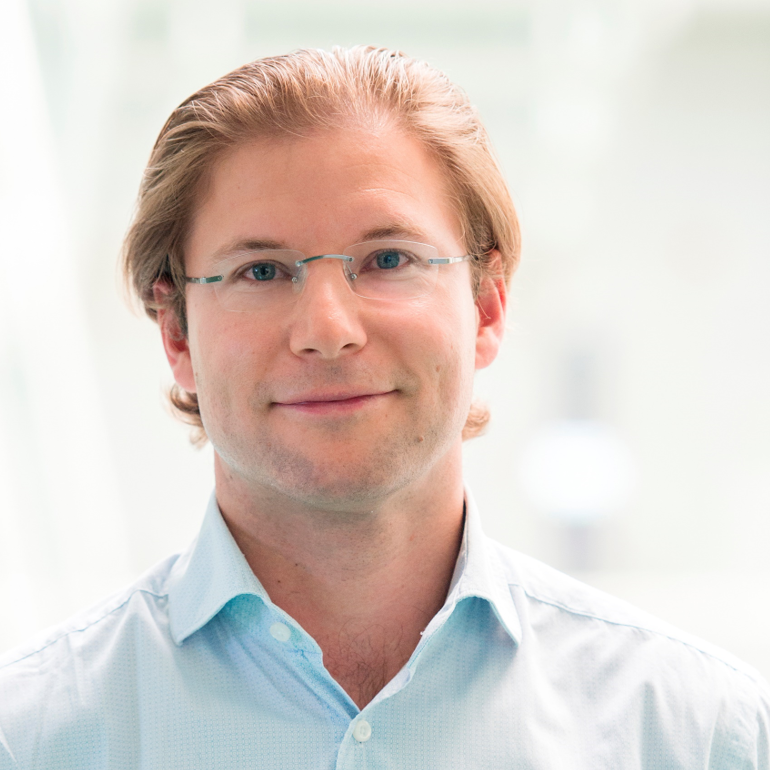Das Klinikum

Prof. Dr. Mathias Heikenwälder
Wissenschaftlicher Direktor
Kontakt
Telefonnummer: 07071 29-82520
E-Mail-Adresse: mathias.heikenwaelder@med.uni-tuebingen.de
Klinik / Institut / Zentrum
Zur Person
-
Biosketch
Prof. Dr. Mathias Heikenwälder is a trained molecular biologist, with expertise in immunology and a strong link to translational research evoked by 10 years of work and expertise in a Pathology Institution (Clinical Pathology, University Hospital Zurich). Since October 2015 he is Department head at the German Cancer Research Center (DKFZ) in Heidelberg focusing on the link between chronic inflammation and cancer. Since October 2022 he is director of the M3 Research Center, University Tübingen. Prof. Heikenwälder publishes his work in high-ranking journals and has established himself as an international leader in the field of liver cancer. Mathias Heikenwälder is the third most frequently cited German-speaking researcher in the field of cell biology in the last years and was one of the Highly Cited Researchers (Cross Fields) (Web of Science Group) in 2019, 2020, 2021, 2022, 2023 and 2024. Not only have his publications been widely cited by the research community, but they have also shifted fatty liver and liver cancer research in new directions - relevant to the day-to-day management of patients with fatty liver or liver cancer.
-
Co-affiliations
- Division of Chronic Inflammation and Cancer, German Cancer Research Center (DKFZ), Heidelberg, Im Neuenheimer Feld 280, 69120 Heidelberg, Germany
-
Cluster of Excellence “Image-guided and functionally instructed tumor therapies (iFIT)
-
AG Heikenwälder
Forschungsgruppe Immune signatures of chronic inflammatory human diseases driving cancer – Publikationen & Team
Aktuelle Forschungsvorhaben / Drittmittelprojekte
Publikationen
- Gao C, Wang S, Xie X, Ramadori P, Li X, Liu X, Ding X, Liang J, Xu B, Feng Y, Tan X, Wang H, Zhang Y, Zhang H, Zhang T, Mi P, Li S, Zhang C, Yuan D, Heikenwalder M, Zhang P*.Single-cell profiling of intrahepatic immune cells reveals an expansion of tissue-resident cytotoxic CD4+ T lymphocyte subset associated with pathogenesis of alcoholic-associated liver diseases.Cell Mol Gastroenterol Hepatol. 2024 Sep 28:101411. doi: 10.1016/j.jcmgh.2024.101411. Online ahead of print.*Co-last co-corresponding
- Zheng M, Zhai Y, Yu Y, Shen J, Chu S, Focaccia E, Tian W, Wang S, Liu X, Yuan X, Wang Y, Li L, Feng B, Li Z, Guo X, Qiu J, Zhang C, Hou J, Sun Y, Yang X, Zuo X*, Heikenwalder M*, Li Y*, Yuan D*, Li S*.TNF compromises intestinal bile-acid tolerance dictating colitis progression and limited infliximab response.Cell Metab. 2024 Sep 3;36(9):2086-2103.e9. doi: 10.1016/j.cmet.2024.06.008. Epub 2024 Jul 5.*Co-corresponding
- Ringelhan M*, Schuehle S, van de Klundert M, Kotsiliti E, Plissonnier ML, Faure-Dupuy S, Riedl T, Lange S, Wisskirchen K, Thiele F, Cheng CC, Yuan D, Leone V, Schmidt R, Hünergard J, Geisler F, Unger K, Algül H, Schmid RM, Rad R, Wedemeyer H, Levrero M, Protzer U, Heikenwalder M*.HBV-related HCC development in mice is STAT3 dependent and indicates an oncogenic effect of HBx.JHEP Rep. 2024 Jun 6;6(10):101128. doi: 10.1016/j.jhepr.2024.101128. eCollection 2024 Oct.*Co-last co-corresponding
- Gallage S, Irvine EE, Barragan Avila JE, Reen V, Pedroni SMA, Duran I, Ranvir V, Khadayate S, Pombo J, Brookes S, Heide D, Dharmalingham G, Choudhury AI, Singh I, Herranz N, Vernia S, Heikenwalder M*, Gil J*, Withers DJ*.Ribosomal S6 kinase 1 regulates inflammaging via the senescence secretome.Nat Aging. 2024 Aug 29. doi: 10.1038/s43587-024-00695-z. Online ahead of print.*Co-last co-corresponding
- Gallage S, Ali A, Barragan Avila JE, Seymen N, Ramadori P, Joerke V, Zizmare L, Aicher D, Gopalsamy IK, Fong W, Kosla J, Focaccia E, Li X, Yousuf S, Sijmonsma T, Rahbari M, Kommoss KS, Billeter A, Prokosch S, Rothermel U, Mueller F, Hetzer J, Heide D, Schinkel B, Machauer T, Pichler B, Malek NP, Longerich T, Roth S, Rose AJ, Schwenck J, Trautwein C, Karimi MM, Heikenwalder M.A 5:2 intermittent fasting regimen ameliorates NASH and fibrosis and blunts HCC development via hepatic PPARα and PCK1.Cell Metab. 2024 Jun 4;36(6):1371-1393.e7. doi: 10.1016/j.cmet.2024.04.015. Epub 2024 May 7.
